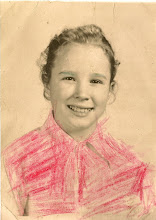The phrase "right or wrong?" may denote the question of accuracy. Are the facts right? Are they wrong, not true to the "real" situations, the facts of circumstance in time and in geography--do they have a factual existence in this world? Do you have those facts right or wrong?
But are you going to teach just the facts?
The traditional teaching of history in its highest standard tries to be right in this sense. But the phrase "right or wrong?"also connotes the question of morality: is it right or wrong, what is written about a given history of America? We all heard about the changes in the words in the history texts in Texas, and the man who promoted those changes. He is viewing history in another light, one in which right or wrong has nothing to do with facts or accuracy of portraying history. He does not care for history that is right or wrong in fact only. He wants to teach children more than the facts.
Are our children to be informed or saved? I thought there was supposed to be a separation of church and state. In one part of our country we want to teach factual history in school; in another, we want to teach the same history we teach in church in school. What deos the church teach? An organized view of the world which reflects specific cultural views belonging to the people who share that view, the facts be damned. Do you know which part of the country you're in? Is your history right? Or is it wrong? It depends on where you live.
I am reminded I am a self-defined textbook language specialist. Maybe I should present at a conference in the Land of the Enemy. When it comes to textbooks, I know what's right or wrong.
Tuesday, May 25, 2010
Subscribe to:
Post Comments (Atom)

No comments:
Post a Comment